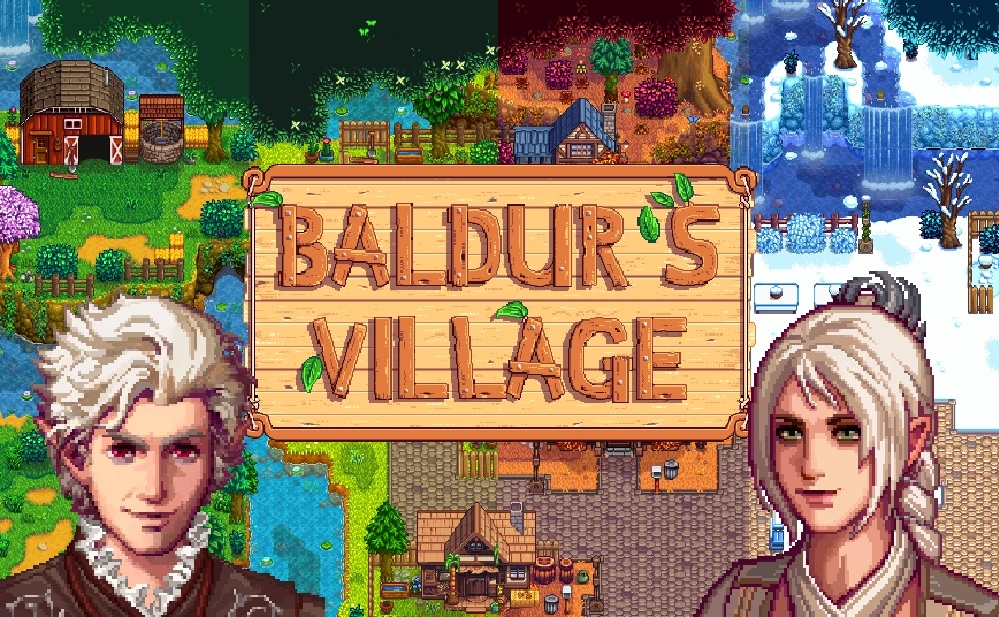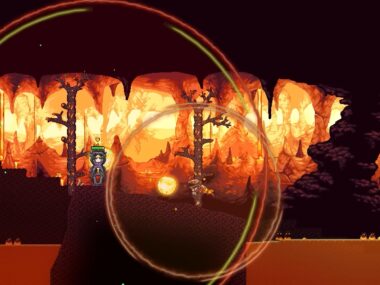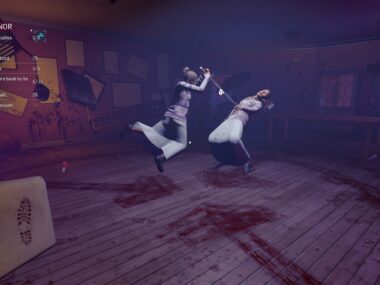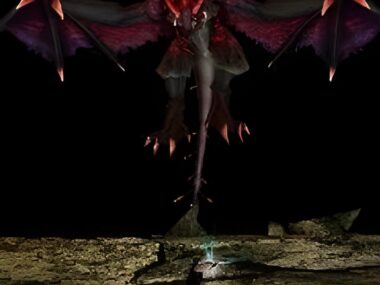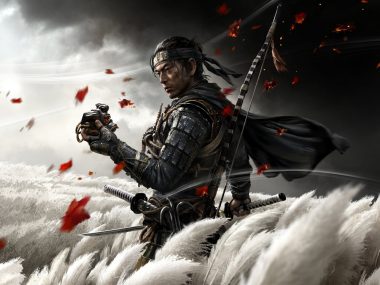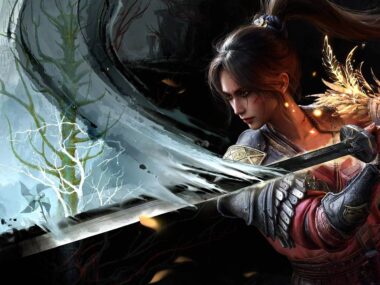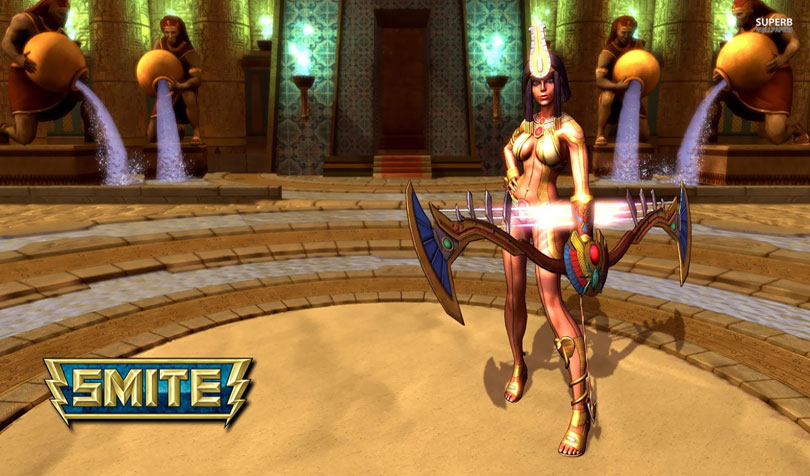Wizards of the Coast (WoTC) keeps finding new ways to test the patience of the Dungeons & Dragons (D&D) community. The latest controversy? The takedown of the Baldur’s Village mod for Stardew Valley—a project featuring over 20 Baldur’s Gate 3 characters that had the direct approval of Larian Studios’ CEO, Swen Vincke.
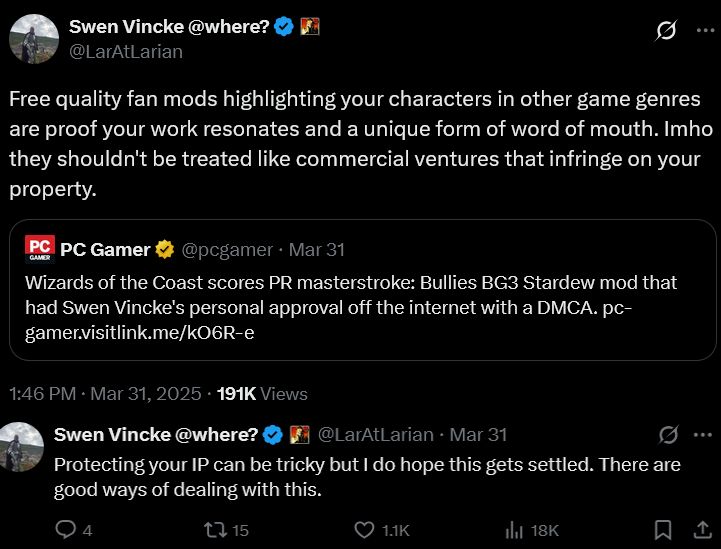
Despite this, WoTC hit it with a DMCA takedown, citing copyright infringement. After massive backlash, they admitted it was a mistake and reversed the decision.
But let’s be honest—this isn’t just about one bad call. It’s about whether WoTC can be trusted at all anymore.
The OGL Backlash: A Warning WoTC Ignored
The Baldur’s Village debacle is just the latest in a string of missteps from WoTC and its parent company, Hasbro. They’ve consistently prioritized profit over player trust, and fans are noticing. Remember the Open Gaming License (OGL) fiasco?
The proposed OGL changes weren’t just tweaks—they were an attempted power grab. If WoTC had succeeded, independent creators would have faced:
- Royalties: A cut of their revenue sent straight to WoTC.
- Submission Requirements: Mandatory content review before publication.
- Loss of Rights: Opting out meant losing control over their own work.
The community wasn’t having it. The backlash was so fierce they had to scrap the plan entirely and release D&D 5e rules under a Creative Commons license instead. Some argued they were just trying to “modernize” licensing, but the damage was done. The OGL fiasco proved that WoTC was willing to tighten its grip on the ecosystem that made D&D a cultural phenomenon.
This wasn’t just a legal change—it was a turning point. WoTC showed their hand, and fans haven’t forgotten.
Reaping the Benefits, But Ignoring the Community
WoTC has built an empire off the passion of its players—but it has a habit of biting the hand that feeds it. Shows like Critical Role helped turn D&D into a mainstream hit, but WoTC doesn’t directly profit from them. Instead, it enjoys:
✅ Increased Sales – More people watching Critical Role means more demand for D&D books and accessories.
✅ Brand Awareness – High-profile content introduces new players to the game.
✅ Merchandising Opportunities – Branded products inspired by these shows bring in extra revenue.
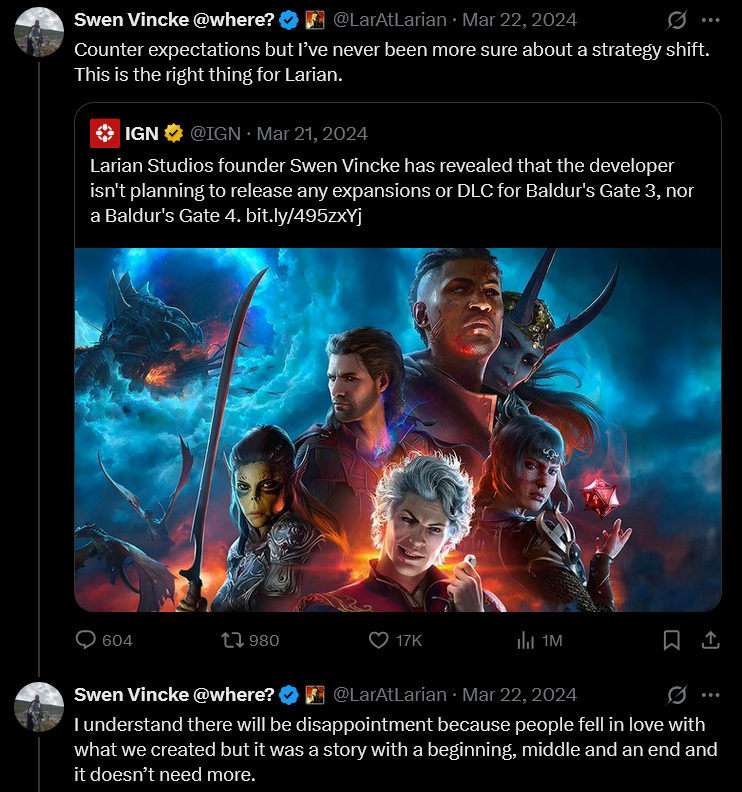
Despite this, WoTC keeps making moves that alienate the very community that keeps it afloat. From the OGL debacle to aggressive copyright strikes, it’s clear they’re more focused on control than collaboration.
Can WoTC Fix This?
Trust isn’t just a buzzword—it’s the foundation of long-term success. WoTC’s repeated missteps are eroding that foundation. Meanwhile, companies like Larian Studios are doing the exact opposite. Larian didn’t just tolerate fan creativity—they embraced it. While Vincke approved Baldur’s Village, WoTC tried to crush it. That contrast speaks volumes.
The financial risk is real. If fans keep losing faith in WoTC, they’ll take their money elsewhere—to companies that actually respect them. For many, the Baldur’s Village takedown wasn’t just frustrating—it was confirmation that WoTC sees its own community as a problem to control, not a force to celebrate.
If WoTC wants to undo the damage, they need to take real action:
✅ Be Transparent. No more corporate doublespeak. Own up to mistakes and communicate clearly.
✅ Respect Fan Creations. Don’t tolerate the community—support it.
✅ Make Decisions That Align With Players’ Values. Learn from past mistakes. Profit shouldn’t come at the expense of goodwill.
Until then, fans have every reason to look for alternatives. And for the first time in a long time, those alternatives are looking better than ever.
